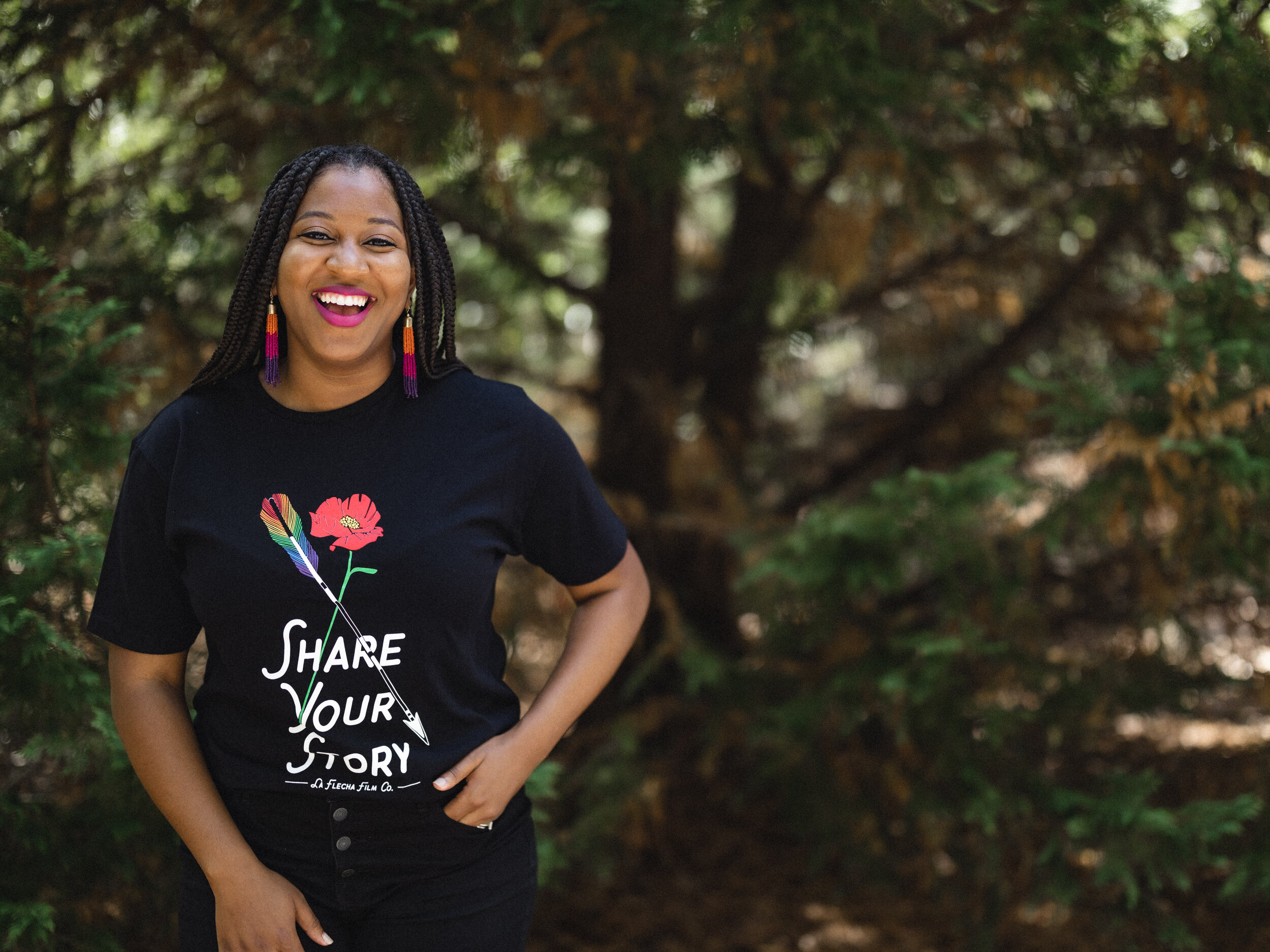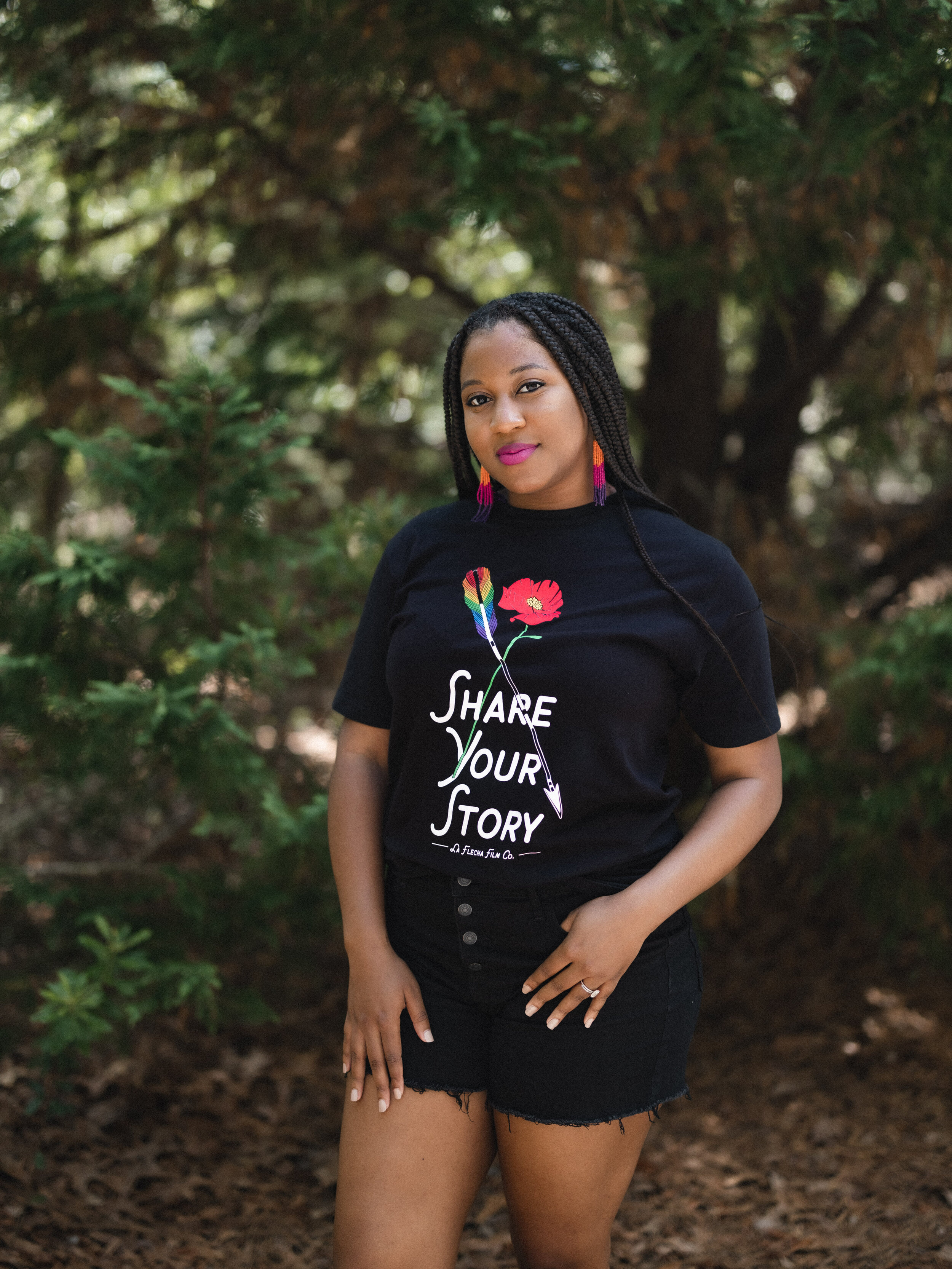The fourth story in this series is that of my dearest friend, Elizabeth Barfield Forte. And while she does not belong to the LGBTQ+ community by identification, her extensive partnership as an ally continues to create space for this community to thrive. Elizabeth is currently the Health Equity Education Specialist at New Hanover Regional Medical Center. She spends her days engaging the medical community to enhance workplace diversity, encourage a culture of inclusion, and address health disparities. My worldview has expanded tremendously because of her gentle example of allyship.
Before I opened myself to experience the vibrance of the LGBTQ+ community, the term “ally” had a negative connotation. Based on my evangelical, non-affirming worldview, ally was a term to describe a person who validated a “sinful behavior.” Over and over the voices of evangelicalism would declare: “If you truly loved someone, you wouldn't condone the sinful behavior of same-sex partnership. Same-sex marriage is incompatible with Christian teaching. God created Adam and Eve, not Adam and Steve. Allowing such sinful behavior is a detriment to a person’s eternal life. God created marriage, which he defines as the lifelong and exclusive covenant of one man and one woman. Hate the sin, love the sinner. Speak the truth in love. Homosexuality is ruining the church in America.” It was settled, these deeply painful colloquialisms only revealed one thing: allyship was in direct opposition to the institution of evangelical christianity.
Though she doesn’t remember, the first one-on-one connection I shared with Elizabeth was in Wilmington at a Wendy’s drive-thru. It was one of those can’t-sleep-weight-of-the-world-on-your-chest kinda college nights. Graduation was happening, regardless of my refusal to end the most formative years of my life. I was terrified to return to a culture that I spent my college years trying to outrun.
In between bites of those chilling, chocolate Frostys, she opened her soul to reveal a warm wisdom that was calming to my anxious thoughts. And what I didn’t know at the time was that this small encounter was setting the stage for a relationship that would carry me through many more long, heavy nights.
As we celebrate PRIDE this month, Elizabeth has taught me the significant, positive role of an ally in the sacred, clandestine, coming-of-age narrative shared by many in the LGBTQ+ community. And while it’s important to highlight the role of the ally this month, it’s even more notable to celebrate with gratitude their commitment to late-night conversations, their attuned presence through a thousand fallen tears, their daily affirmations in spite of lingering fears, and their strength to believe in a community before it has the courage to believe in oneself.
So let’s dive into this interview with Mrs. Forte as she eloquently dismantles the biases of what it means to be an ally. She teaches us, through her example, how to show up for those wrestling, discovering, and living as their most authentic self in a world that would rather us hide.
What does allyship mean to you?
To me, allyship is showing up and speaking out in both public and private spaces. It’s easy to do the fun things with my friends within the LGBTQ+ community, but allyship also requires me to leverage my privileges to speak out against negative chatter, fight against harmful policies and laws, and to love my people out loud.
How have you been impacted by the vibrancy of the LGBTQ+ community?
I am impacted by the vibrancy of the LGBTQ+ community every time someone chooses to share their story with me. Over the years, I’ve been trusted to walk alongside people as they uncover who they want to be. Both the pains and joys that are shared have given me the precious chance to dive into the depths of friendship. Seeing others live fully and authentically always pushes me to be my fullest self as well.
How do you encourage others to expand their religious beliefs to be more inclusive of the LGBTQ+ community?
What I often tell people who question my stance is that it is easy to have judgements of others that you keep at a distance. Getting up close and personal in real relationships with people in the LGBTQ+ community has the power to remove the callousness that “religion” brings. I believe God is love and love is love.
How does the work of addressing biases affect the inclusion of the LGBTQ+ community?
For me, they are 1000% connected. Many people are unaware of the biases they have and how they exclude others, but particularly our LGBTQ+ neighbors. We call our biases “preferences” or “opinions”, but often don’t realize the real harm they inflict on those who reside in the blindspots of our lives. Getting to know who we are as people, what we believe, and why we believe it is a vital step I think everyone should take.
What is your greatest message to a teen struggling with his/her/their sexual or gender identity?
“I don’t know what your life looks like right now or what your future holds, but you deserve the love and acceptance you seek. I hope that each day you find a new way to press into the person you desire to be until you wake up one day surrounded by the beautiful and fulfilling life you dreamed of in your youth.”
What message do you have for an LGBTQ+ person who is sorting through religious trauma?
Religion can really be the worst right?! My trauma in this space is rooted in different things, but I hear you and I see you. What I’ve had to learn for myself is that like any relationship, there are seasons. All of these seasons require faith that the relationship is worth it. Even though the way you pursue it may look different or “untraditional”, you still belong and get to feel the love of your Creator.
Elizabeth Barfield Forte, from the bottom of my heart, thank you for choosing the journey of allyship. I know it was the road less traveled, a scandalous path that many question and so few understand. But even through the hardships you faced, you believed deeply and fought fervently for a community who has grown weary of proving their souls have eternal significance.
In the LGBTQ+ community, it’s arduous to exist in a current that is in direct opposition to who you are. And as an ally, you are a tree with firm roots, planted in this stream of unattainable claims. You extend your branches to those who need a safe place to land, your leaves provide ample shelter for sifting through the chaos, and your trunk is grounded in nothing but love that is strong enough to absolve the heavy current, wide enough to embrace the most broken of souls, and confident enough to advocate for those who need a voice.




